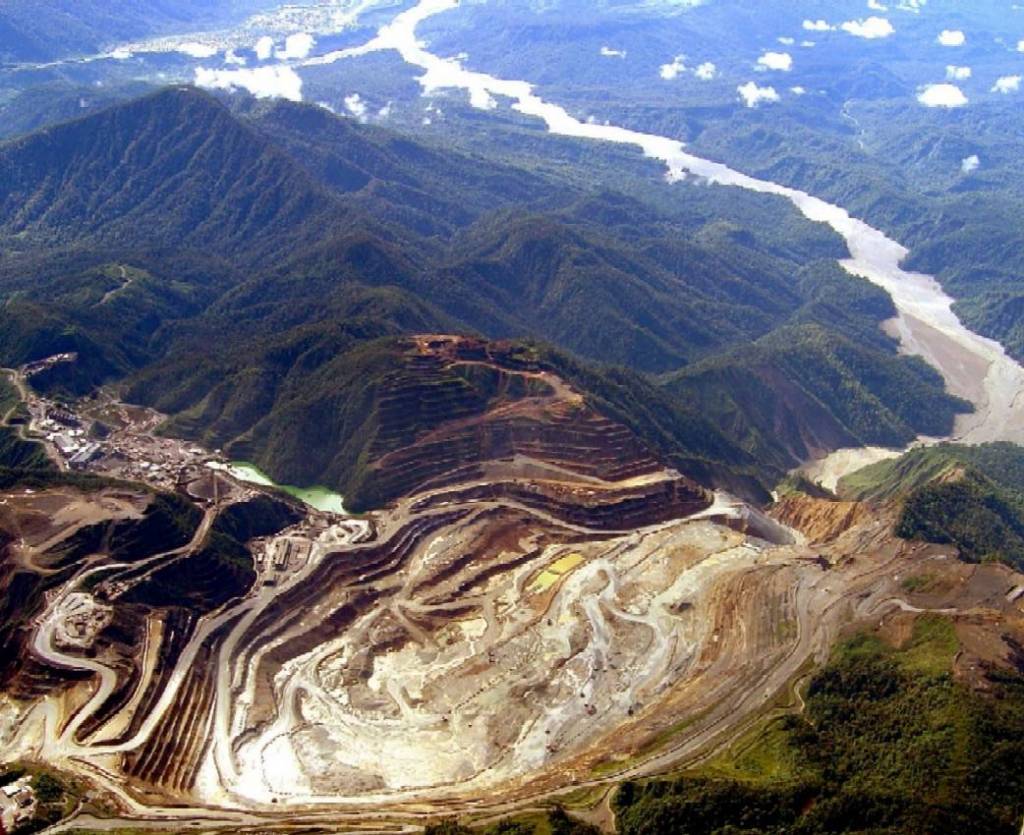At its 2012 Annual Report Meeting held in Port Moresby today, the PNG Sustainable Development Program (SDP) announced its willingness to negotiate an exit from OTML, the company which runs the Ok Tedi mine, PNG’s largest. SDP is currently the majority shareholder in Ok Tedi, with a 63% shareholding. But the PNG Prime Minister has made clear his determination to remove SDP from Ok Tedi, and now the trust-fund, established at the time of BHP’s departure from Ok Tedi in 2001, has acquiesced.
In a statement in its 2012 Annual Report, the SDP Chairman Sir Mekere Morauta notes has called for a “fair and transparent” process around its exit, but has admitted that the PNG Government is unlikely to buy its stake in OTML at market value, which it estimates at $US1.1 billion. The statement implies that that SDP will instead negotiate with the PNG Government over its use of OTML dividends. But there are no details, and SDP is unlikely to have influence with the PNG Government once it loses its Ok Tedi majority stake.
With SDP’s exit from OTML, its long-term fund will come into operation. To date, most of the dividends paid by OTML to SDP have been saved into a long-term fund for utilization only after mine closure. SDP has indicated that it will treat its exit from OTML as equivalent to mine closure, which will trigger expenditure from the long-term fund, currently valued at $1.4 billion (out of about $1.8 billion in net revenue SDP has received from Ok Tedi since its inception; the rest has largely been spent on development projects across the country). The long-term fund is to be spent entirely in the Western Province.
The new stance taken by the SDP is in contrast to the message delivered by the SDP Chairman in his media statement of April. This concluded that “Papua New Guinea stands to benefit from the continuation of PNGSDP and its shareholding in Ok Tedi Mining Ltd,” thereby signalling that SDP intended to maintain its stake in OTML. Now just a couple of months on, SDP simply notes “the National Government’s decision to remove [SDP] from any involvement” with OTML.
The change in SDP’s position is a major victory for PNG PM O’Neill, but raises serious questions about government-business relations and the security of property rights in PNG. It will also reduce expenditure effectiveness. The SDP Annual Report estimates its share in OTML at $US 1.1 billion. Essentially, this decision switches that $1.1 billion from SDP to the PNG Government. My own work both on SDP (I co-authored a review in 2011), and on PNG Government spending (including through the PNG PEPE project) leads me to the conclusion that, while SDP has its own problems and limitations, the $1.1 billion would be better spent by SDP than by the PNG Government, especially given the serious corruption and capacity challenges faced by the latter.
SDP’s concession no doubt reflects the pressure it has been placed under. It is a sad day for PNG.
Stephen Howes is Director of the Development Policy Centre. In 2011, he co-authored an independent review of SDP, which can be found here [pdf].


Now that SDP is out Western Province the people’s future in Development terms is quashed.
It is indeed a sobering thought when you start to think about how the influx of funds into the government machinery will be managed and spent in a transparent way to reach those people in the remotest parts of WP or PNG.
Sadly the track record of successive governments does not inspire confidence,
Whatever happens I hope that the state maintains the spending on reducing the environmental impact of the mining at the levels that PNGSDP has ensured over the last 11 years